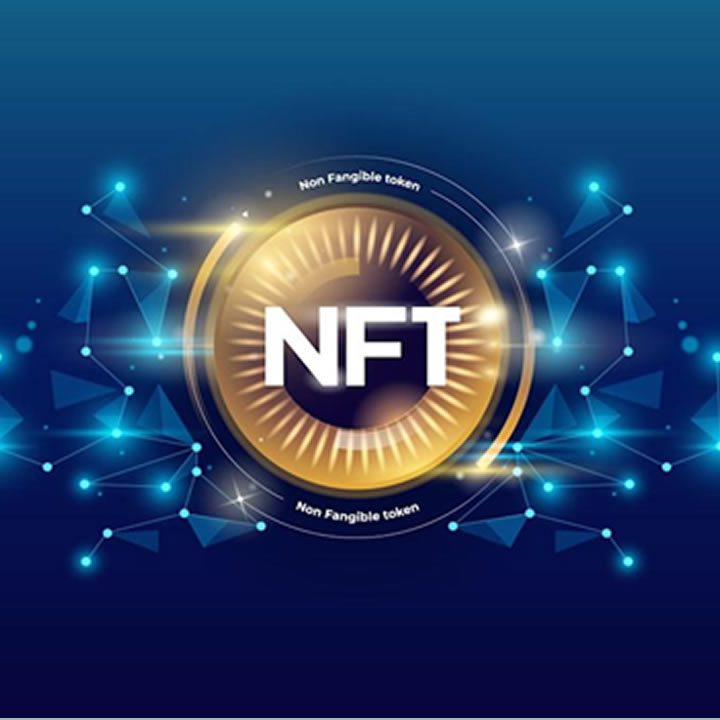The online market of digital assets is gaining popularity among the general audience. Auctions have been taking place for hundreds of years. It is a type of fundraising method. The NFT marketplace lets buyers and sellers participate in the NFT world.
The NFT market is huge and allows users such as creators and investors to become a part of the online asset world.
What is an NFT Marketplace?
An NFT Marketplace is a platform accessible to users across the globe. The marketplace allows users to transfer and purchase NFT assets on the peer-to-peer network. The platform enables the users to store, transfer, and purchase Non-fungible tokens.
The users can create an account, mint their assets into tokens, upload digital assets, and list them for sales.
NFT – Non-fungible Token
NFT stands for non-fungible token. It’s a digital asset, data, or thing created with Blockchain technology. Before getting to know about NFT Marketplace, let’s see what an NFT is and how it operates, and its uses.
NFTs are one-of-a-kind digital tokens that can’t be duplicated on a network. An NFT can be minted from any digital data, including images, audio, and video. It may be used to digitize tangible goods in the real world and utilize NFT to claim ownership of them.
Artists can use NFTs to establish ownership of their items or creations. It allows them absolute control and ensures the validity of their work, including photographs, audio, movies, and artwork.
How to Develop your Own NFT Marketplace?
Transparency: The Marketplace should provide full transparency for all the platform users, giving them full control over their assets and transactions on the platform.
Storefront: All the eCommerce website has an inventory to manage the demand and supply of the products. The NFT marketplace also needs a storefront to manage all the listed NFTs on the platform.
Multiple Filter: Investors should be able to invest in the NFT based on their interests. The platform should allow the investors to easily navigate the marketplace and find the NFT they are looking for.
Wallet Integration: The wallet allows the investors and users to receive and send digital assets on the decentralized network. Users of the marketplace should be able to connect their preferred wallets to the marketplace.
Purchase, Sale, and Auction options: The marketplace users should be able to sell, buy, trade, and auction the NFTs. The auction option of the marketplace should allow the users to set expiry date.
Easy Ways to Develop an NFT Marketplace
The NFT market has grown into a multibillion-dollar enterprise. Users from all around the world can list their developed NFTs on the NFT marketplace. The NFT marketplace on Ethereum is the world’s first Blockchain.
Because of the NFT’s growing popularity, more NFT marketplace development companies have been able to open new markets for consumers. There are many different kinds of marketplaces; some specialize in artwork, while others focus on files linked to specific games or commodities.
An NFT Marketplace can be developed in two ways, they are
- Development from scratch
- Customizing a White label platform
NFT Marketplace Development Steps
- Blockchain selection: The developer has to select the blockchain technology in which the marketplace will operate and allow users to transfer and exchange assets.
- User Interface Designing: User Interface designing is crucial. It allows all the users to experience a smooth and simple process for sending, receiving, and exchanging the assets among themselves in the blockchain network.
- Smart Contract Development: It is the fundamental and most vital part of marketplace development. The marketplace operates based on the protocols and algorithms integrated into the smart contracts.
- Storage Management: The digital assets need to be stored on the network. This storage requires huge space for the blockchain network. The marketplace and smart contract manage all these.
- Testing: This stage of the development assures the marketplace developer that it will operate without any fault. It guarantees smooth processing for all users of the marketplace.
- Launch: It is the final and important stage. It allows the marketplace to go live in the digital world. Users from across the globe can access the assets for purchasing, selling, and trading them on the blockchain environment.
Profit Model for NFT Marketplace with Auction Portal
The NFT Auction Marketplace is an online platform that offers the platform owners an opportunity to generate income from the market and its movements. The marketplace owners can choose any model that suits their business requirements.
Tax on sale: When any NFT asset is listed and sold on the platform, the NFT auction levies a fee for the seller. The marketplace can set the fees based on the sale price of each NFT transaction.
Processing fee: As the marketplace admin, the owner can fix or customize the processing fee for each transaction executed on the platform. The higher the number of transactions the higher the profits generated.
Listing commission: When the artists and creators submit their assets for listing on the platform, the owners can charge listing fees. The listing commission may increase or decrease based on the NFTs.
If you are an NFT enthusiast and want to make additional income from the growing market.
Then, here is an opportunity waiting for you to grab and improve your business standards. NFT Marketplace with an Auction portal will help you increase the number of participants and help you make good returns from the NFT market.

